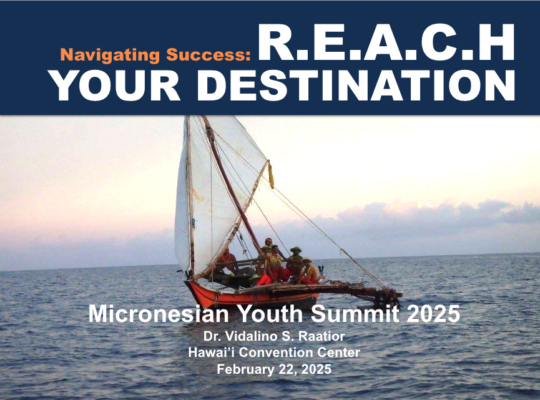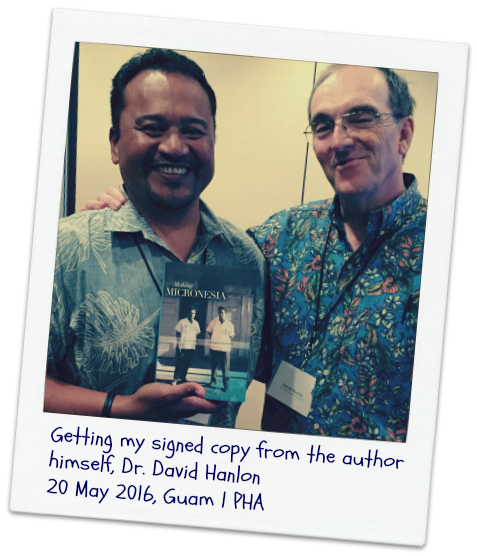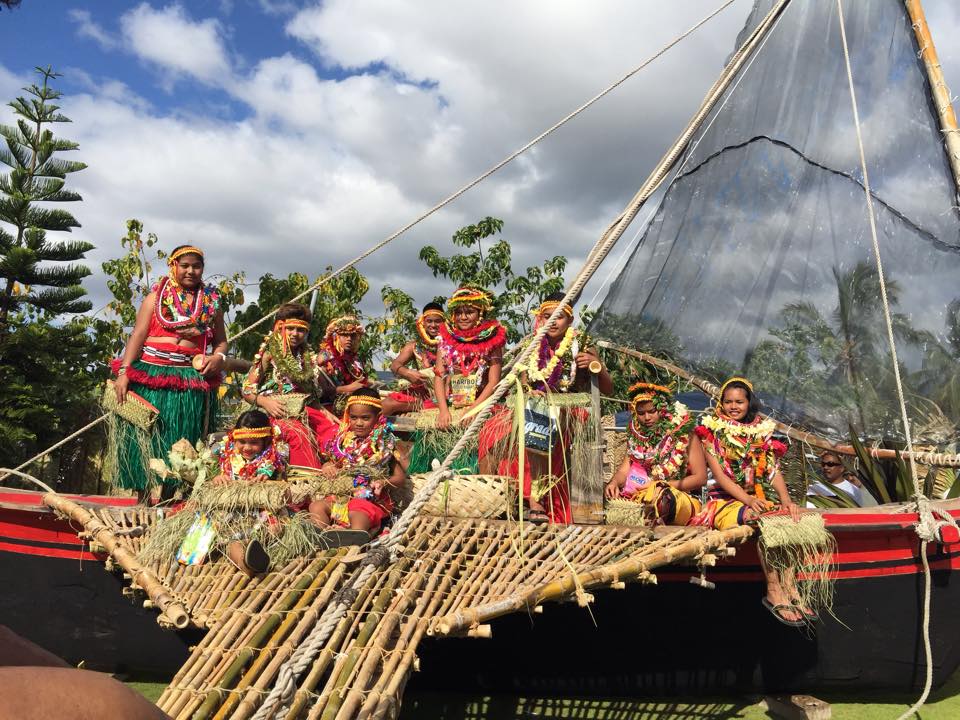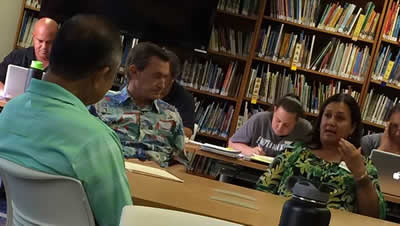“The foundation of Indigenous research lies within the reality of the lived Indigenous experience. Indigenous researchers ground their research knowingly in the lives of real persons as individuals and social beings, not on the world of ideas.” (Wilson, 60)
Did reading “Research is Ceremony” by Shawn Wilson change my thinking? If so how, if not why not?
I have been excited to learn more about the indigenous research paradigm within the broader context of post-colonialism. As a Micronesian who is just starting to scratch the tip of understanding and taking ownership of my role as a researcher in the lives of the community from which I was born and raised, it’s becoming very important to me to learn as much as I can about the indigenous research paradigm. I know nothing about it other than brief mention of the leading postcolonial authors.
But for the reading circle I deliberately wanted to read a book that focus on what I consider as the most important aspect of the Micronesian culture, i.e. relationships. I wanted to know if there are alternative books out there that focus specifically on this aspect of the lived experiences of the indigenous peoples wherein the researcher is part of those wide and deep relationships. In other words, can an indigenous Chuukese researcher conduct authentic research within his/her community while maintaining a balance between objective scholarship and subjective viewpoints born out of personal lived experiences? Is there a place in the European / American educational systems for the authentic traditions, ceremonies, cultural norms and values of the Chuukese community?
As I tried to articulate these questions to Dr. Mary Hattori in the few minutes allotted before selections of a book circle, I was also mindful of my openness to follow my heart rather than following others. I was aware of the number of my colleagues who were also asking questions to Walter and others about postcolonial slants of readings and their own hopes to expand on their lived experiences as Hawaiians. I was aware that I did not particularly want to learn about or compare my own with theirs nor did I want to check my experiences and desires with theirs. Both obviously are valid and worth pursuing, but my doctoral journey has become a de-education of all the foreign concepts I have been learning since kindergarten to graduate schools. Never have I been more ready to deconstruct all of these foreign, mostly American, concepts, values, language, words in order to authenticate my own Chuukese Way.
Reading Wilson’s book was transformational and almost cathartic for me. It provided for me the setting to understand that my deepest desires to de-educate myself and re-claim my indigenous identity and roots. By de-education I mean the process by which I am beginning to disclaim every Western-focused, American-influenced, post-colonialistic epistemology which I have learned in the American school system since my childhood. Throughout out my 49 years of formal education, I have not claimed any expertise in any of the knowledge, skills, values that are authentically ours in the Northwest islands of Chuuk.
Completing this doctorate will probably label me as one of the most “educated” Chuukese among a handful of others who have endured and achieved this feat of a Western-focused label of the elite. Yet I will have little to no knowledge of all that a pwo navigator has to learn through years of apprenticeship and character development to achieve that indigenous equivalent of a doctorate. Wilson’s book has provided for me the added internal push to emancipate myself from this belief that a dissertation, followed by an Ed.D label after my name constitutes an authentic label of wisdom. It does help me understand that it is needed to be able to speak and understand the language of the oppressors.
And so I shall zealously continue on this journey but with not at the expense of rejecting my ontological framework as an indigenous researcher. In fact, I have the responsibility to be accountable to my ancestors to right what might have been wronged, to correct what might have been misinterpreted, and to acknowledge our indigenous values, beliefs, history as valid components of a worldview. We, too, can contribute to our own indigenous theoretical framework. We, too, can add to the academic discourses not as American educated scholars but as wise indigenous leaders in both worlds….theirs and ours.




